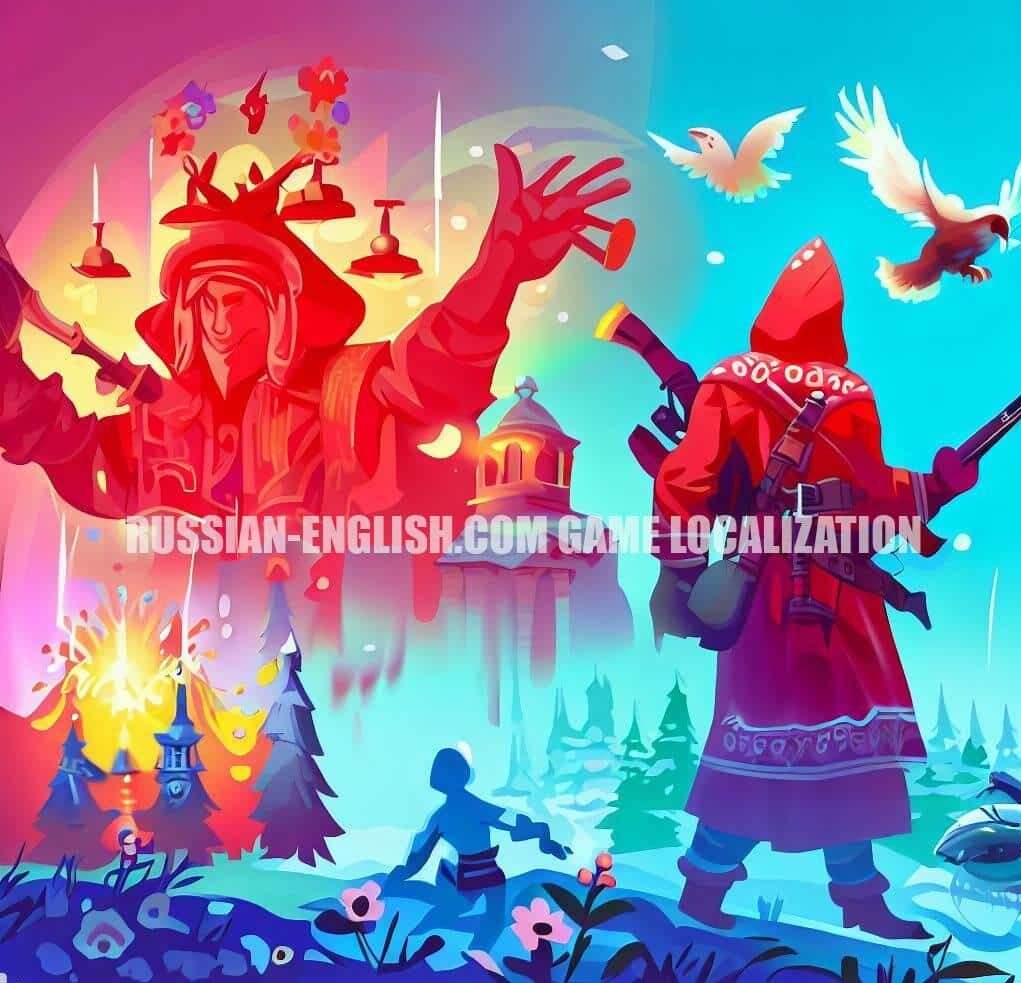Localization is the process of adapting a product or service to a specific market or culture. Localization involves not only translating the text, but also adjusting the design, layout, format, symbols, images, colors and other elements to suit the preferences and expectations of the target audience. Localization aims to make the product or service appear as if it was created for that market or culture.

Russian and English are two languages that have significant differences in terms of grammar, syntax, vocabulary, alphabet and punctuation.
Therefore, localization from Russian to English or vice versa requires a high level of linguistic and cultural competence, as well as attention to detail and quality assurance. Localization from Russian to English or vice versa can help you reach new customers, increase your brand awareness and loyalty, and enhance your user experience and satisfaction.
Here is a possible rewrite of the text in regards to Russian-English game localization:
Russian-English Game Localization: What You Need to Know
What is Russian-English game localization?
Russian-English game localization is the process of adapting a game from Russian to English or vice versa. It involves not only translating the text, but also adjusting the design, layout, format, symbols, images, colors and other elements to suit the preferences and expectations of the English-speaking or Russian-speaking audience. Russian-English game localization aims to make the game appear as if it was created for that language and culture.
Why is Russian-English game localization important?
Russian-English game localization is important because it can help you reach new customers, increase your brand awareness and loyalty, and enhance your user experience and satisfaction. Russia and English-speaking countries are both large and lucrative markets for gaming, with millions of gamers and billions of dollars in revenue. Technology and connectivity have enabled gamers to access games from different regions and languages. To succeed in these competitive and diverse markets, you need to localize your game for your target languages and cultures.
How to localize your game from Russian to English or vice versa?

Russian-English game localization is not a simple or straightforward process. It requires a high level of linguistic and cultural competence, as well as attention to detail and quality assurance. You need to consider various aspects of your game, such as:
- The genre, style, tone and terminology of your game
- The content, context and meaning of your text
- The culture, customs and norms of your target audience
- The graphics, sounds and music of your game
- The regulations and standards of your target market
You also need to choose the best tools and methods for your Russian-English game localization project, such as:
- The platforms and engines of your game
- The file formats and encoding of your game
- The localization software and services you use
- The localization workflow and process you follow
- The localization testing and quality assurance you perform
Russian-English game localization is a complex and multifaceted phenomenon that requires planning, expertise and creativity.
Russian-English game localization can be challenging but rewarding. It can help you create a better game for your global audience.
We also localize games for the Spanish market and culture.
Russian-English game localization presents a unique blend of challenges and opportunities that can significantly impact the success of your game on the global stage. While it might seem like a straightforward task of translating text, it goes far beyond mere words. It involves the intricate process of adapting every aspect of your game to resonate with the cultural nuances and preferences of both the Russian and English-speaking players.
The process starts with the translation of dialogues, instructions, and interface elements. But it doesn’t end there. Effective game localization requires a deep understanding of the target audience’s cultural context, humor, idiomatic expressions, and even pop culture references. These elements, when accurately localized, can create an immersive gaming experience that feels native to players in both languages. Localization isn’t just about words; it extends to the visual and auditory aspects as well. Graphics, images, symbols, and even colors can have different connotations in various cultures. Adapting these elements appropriately ensures that players in both languages find the game visually appealing and relatable.
Voice acting and audio cues also play a pivotal role. A well-localized game employs voice actors who not only speak the language fluently but also capture the emotions and nuances that resonate with the specific audience. This attention to detail can breathe life into characters and make the gaming experience more engaging.
Despite the challenges, the rewards of effective Russian-English game localization are substantial. By breaking language barriers and resonating culturally, you create a bridge between players from different backgrounds. This not only expands your potential player base but also enhances player satisfaction and loyalty.
Successful game localization means more than just making the game understandable – it’s about crafting an experience that feels tailor-made for each player, regardless of their language or location. It’s an investment that demonstrates respect for your players and can lead to enthusiastic recommendations, positive reviews, and increased revenue. In the dynamic world of gaming, where global audiences are connected by the love for immersive experiences, investing in Russian-English game localization isn’t just a strategy; it’s a means to elevate your game into a cross-cultural sensation.



